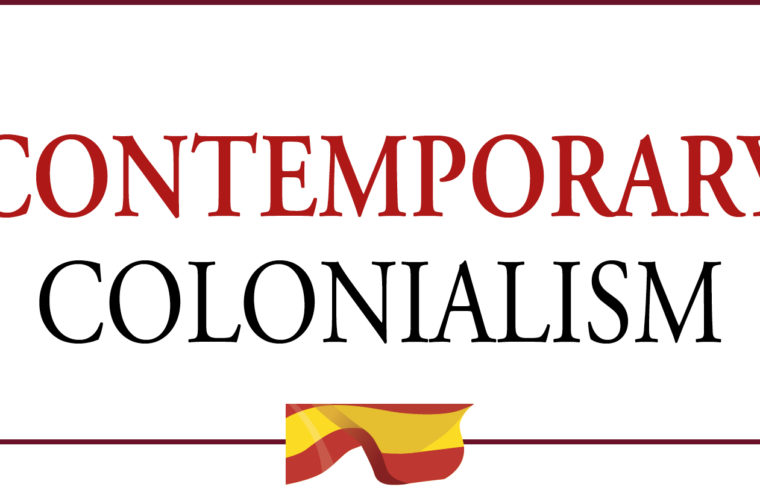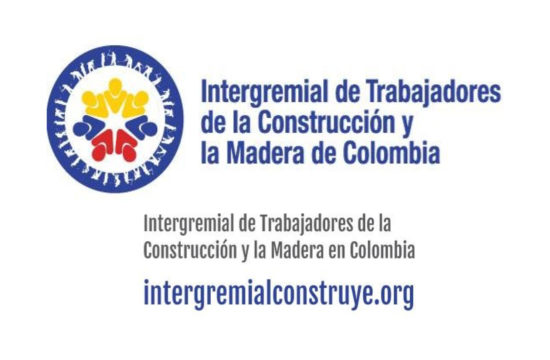Daniel Casal
Frente Sindical Obrero de Canarias – General Secretary – SPAIN
Since the time of the Phoenicians, the expansion of populations has been constant in the history of mankind. Perhaps we could fi nd the best colonizing example in the Phoenicians, their expansion along the Mediterranean coast and their settlements and infrastructures have led them to be considered as the fi rst colonizing population, even though their expansionist interests were basically linked to the control of trade.
Carthage itself, an ancient colony founded by the Phoenicians, eventually became a colonizing power also keen to control the commercial territory of the Mediterranean.
However, it was Rome that constituted an immense empire that governed most of Europe and the East.
The basic feature of the expansion of civilizations in ancient times was the extraction of wealth and the control of trade and routes, as well as the control of the peoples and territories occupied.
This was the fundamental axis of the interest of the colonizing powers in the expansion and domination of other peoples over the course of time.
Certain authors establish Modern Colonialism between the 15th and 20th centuries, specifi cally until World War II, with a temporal differentiation around the year 1800 or so, in order to differentiate the colonial processes of Spain and Portugal from the European expansion towards Asia, Africa and the Pacific.
This is an academic division that I do not agree with and that I do not understand what it contributes to the refl ection on colonialism.
Indeed, the colonial expansion pursued different interests in different historical circumstances, but it also maintained and continues to maintain a fundamental and indistinct feature: the appropriation of the wealth of the peoples, their subjugation and plundering in all its forms.
European powers have always pounced on Africa, Asia and the Pacifi c with the same purpose, to seize natural resources as an element of capitalist accumulation at all times.
The expansion of culture, modernity and civilization was nothing more than empty talk aimed at justifying robbery and occupation, if not colonial extermination.
Beginning with the processes of decolonization, a period between 1947 and 1969, which affected almost all of Asia and Africa, a new type of colonialism was introduced. Independences, except in some cases, were no more than a momentary illusion.
Neocolonialism has been incorporated into the classic colonial occupation, the former colonies becoming subject to the economic and political interests of the former metropolises and their development subjected to the interests of transnational corporations and economic lobbies.
Conventional colonial power, executed directly by the metropolises, is replaced by interposed governments, consisting of locals, directed and controlled by them, leading to the idea of controlled independence and to the emergence of the power and infl uence of large companies.
The most signifi cant feature of contemporary colonialism is the large extractive companies that are politically embedded in the local political powers.
Of course, this is not a new capitalist penetration, since different companies are already exploiting these countries, a signifi cant example being Africa, where Monsanto, Unilever, Syngenta, DuPont, Cargill, Diaego, SAB-Miller, Coca-Cola, Yara (the biggest fertilizer producer in the market) have a significant presence.
However, in addition to the strong presence of multinationals, there is now the control of the sovereignty of peoples through the major Free Trade Agreements (FTAs).
The FTAs run through the map of international colonialism and they do so together with military expansion and political control, which, as in the Berlin Conference, divide up the world, giving shape to what we understand as contemporary colonialism.
Colonialism’s genetic map, from the Phoenicians to the FTAs, is the same: plunder as an objective, subjugation as a means and looting as a result.
Colonialism, be it classic, historical or contemporary, is the greatest pandemic that humanity has ever experienced.
Putting an end to it is a task for all of us who believe that relations between peoples should be based on freedom, equality and solidarity.
There will be no real independence if it is not firmly based on respect for the sovereignty of the peoples, and this can be achieved only with the weapons we have in our hands: the expansion of culture, peoples‘ power, democratic guarantees, development in freedom, and recognition of the right to self-determination.
1) The Colonialismin modern Europe commenced in the 15th century and can be divided into two phases which partially coincide in time: the fi rst, from about 1415 to 1800, and the second, almost from 1800 to World War II.
2) Europeans carried with them viruses and bacteria that did not exist in the lands they conquered and therefore the local populations had no natural defenses against them. For example, in America there was no malaria, leprosy, typhoid fever, diphtheria or measles, which were fatal to the native inhabitants. In this way, the possibilities of resistance were reduced.
Fuente: https://www.caracteristicas.co/colonialismo/#ixzz7LWOIx4RK
3) Imperialism is a form of political domination of one state over another. Imperialism may take the form of colonialism, and all offi cial empires were founded thanks to colonialist policies. Nevertheless, imperialism may exist without colonialism, in other words, without the use of military force. The reason for this is the economic, cultural and/or political infl uence that a power can exercise over countries that depend on them, usually for economic reasons. This implies that the principal basis of imperialism is foreign debt, since creditor countries can impose all kinds of conditions. Imperialism is also called neocolonialism.
Fuente: https://www.caracteristicas.co/colonialismo/#ixzz7LWOpVnin



